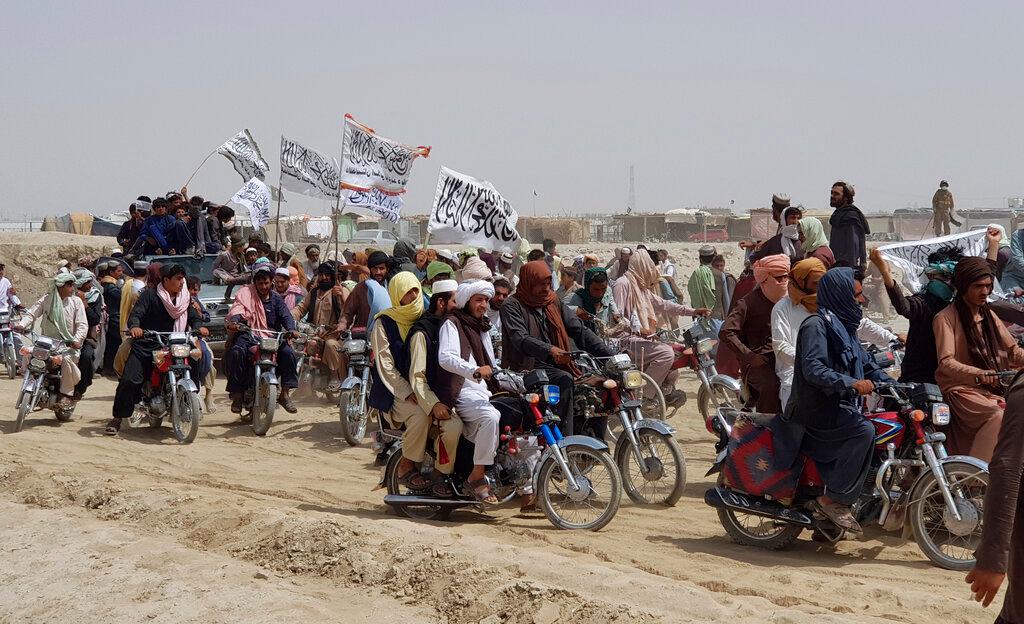Triumphant Taliban targeting Afghanistan’s IT infrastructure
To many ordinary Afghans, the Taliban seem intent on taking their country literally and figuratively back to the dark ages.
Just In
The Afghan IT sector, one of the few success stories from the war-ravaged nation, is now threatened by a resurgent Taliban.
More and more Afghans have come online – 12.8 million Afghan internet users as of 2021 – and the industry has flourished over the last 20 years.
“It was one industry where the public and private sector have been able to build a partnership to provide services to Afghans, while generating revenues for the government and private companies,” Mohammad Najeeb Azizi, the former director of Afghanistan Telecom Regulatory Authority (Atra), told Al Jazeera.
However, this potential is quickly ebbing away as the conflict worsens and Taliban retake control of the nation they used to rule with an iron fist.
As the Taliban made sweeping gains across the country in the last two months, Afghanistan’s IT and power infrastructure have come under sustained attack.
On July 5, Taliban fighters blew up fibre optic devices and system equipment in Islam Qala, a border city with Iran. The attack has left the city without internet connectivity.
Last month, Atra reported that 28 telecoms antennas had been destroyed across the country in the last three months, while another 23 were partially damaged, seriously affecting digital and mobile communication services in the country.
Simultaneously, the impoverished nation’s electricity infrastructure was also taken out, making the power supply extremely erratic even in Kabul.
“In the last six months, many electricity pylons that bring imported power into Afghanistan have been damaged,” Sangar Niazi, the spokesman of Da Afghanistan Breshna Sherkat (DABS), the country’s national power supplier, told Al Jazeera. Afghanistan imports nearly 70% of its electricity.
The lack of electricity has badly hit the country’s small IT sector, particularly young professionals like 30-year-old Ali Atayee.
“People in Kabul get only a few hours of electricity per day, some not even an hour, which is only enough to charge your devices and it gets cut again,” he said.
As a freelance web developer, Atayee has struggled to meet deadlines.
“I have barely been able to get any work done lately, and all my tasks are piling up. The other day, my laptop charger got fried due to the unstable electric currents.”
Atayee said a lack of proper infrastructure is also discouraging Afghan businesses from going online and opening websites he could design and operate.
“They are hesitant to bring their business online or use technology to their advantage. It impacts both the customers and the professionals in the field,” he said. “We are so behind in the use of technology compared to other countries. We should have online payment capability by now.”
Many businesses in Kabul’s IT sector have bought large power generators to ensure continued supply, but the costs eat into any small profit they may make.
For smaller businesses and freelancers such as Atayee, work that previously seemed abundant is no longer available or pays little.
Afghanistan’s business experts warn that if the conflict continues at the current pace, the additional infrastructure costs and risks will discourage new investments.
“When warring factions shut down services, it affects the revenue generation of these companies. That leads to reducing investment in its upkeep, depriving locals of these essential services,” ATRA’s former director Azizi said.
It is not only private businesses affected financially by Taliban attacks on IT and electricity infrastructure. DABS spokesman Niazi told Al Jazeera the cost of repairing the power pylons has been mounting, putting pressure on the almost bare government treasury.
According to Azizi, it is ordinary citizens who are most affected by infrastructure destruction.
“Afghans use communication services not only to improve their lives but to remain in contact with their loved ones in such critical times,” he said. “Telecoms is a public service infrastructure and a basic need of the Afghan public.”
He appealed to the fighting factions to “protect essential services which are not only used by ordinary citizens but also by the warring parties themselves”.
Niazi described the Taliban attackers as the “enemies of light”, who are turning an essential infrastructure into yet another casualty of never-ending war.
“It is an attempt to not only push the country into physical darkness, but also intellectual darkness.”
Subscribe to our newsletter
To be updated with all the latest news and analyses daily.
